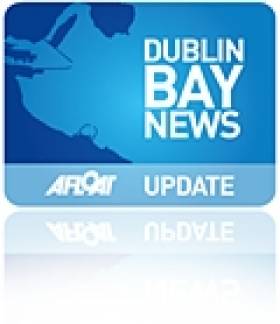Displaying items by tag: Whitstar
Tankers Load Fuel in Dublin Bay
In a highly unusual procedure, a tanker took on bunkers (loading of fuel) while anchored in Dublin Bay. The procedure took place on 2 August when the Whitstar (2,159gt) moored alongside the larger Pembroke Fisher (9,356gt) writes Jehan Ashmore.
The Whitstar had arrived from Dover to conduct bunkering. The vessel approached the Pembroke Fisher to tie mooring ropes amidships, fore and aft.
The bunkering took several hours to complete. With bunkering complete, the Whitstar proceeded to the Clyde. Incidently, a fleetmate of Whitstar, the Whitchampion arrived at Dublin port earlier during the summer to load bunkers for a large cruiseship. While the re-fueled Pembroke Fisher returned to anchor overnight off Dalkey Island.
Prior to the bunkering operation, Pembroke Fisher had spent several days at anchorage south of Dalkey Island after discharging petroleum products at Dublin Port.
It is also unusual for commercial shipping to take anchorage off Dalkey Island while close to Killiney Bay. Otherwise, it is the norm for vessels to anchor in Dublin Bay with the majority of ships taking anchorage south-east off Dun Laoghaire.
The next day, Pembroke Fisher weighed anchor and firstly set a course for the Kish Lighthouse and then altered to proceed south down the Irish Sea bound for Milford Haven. The Welsh port is the location of one of the largest oil refineraries in the UK.

Whitstar moored alongside Pembroke Fisher on 2 August. The smaller tanker was transferring bunkers in a rare operation in Dublin Bay. Photo: Jehan Ashmore/ShipSNAPS





























































